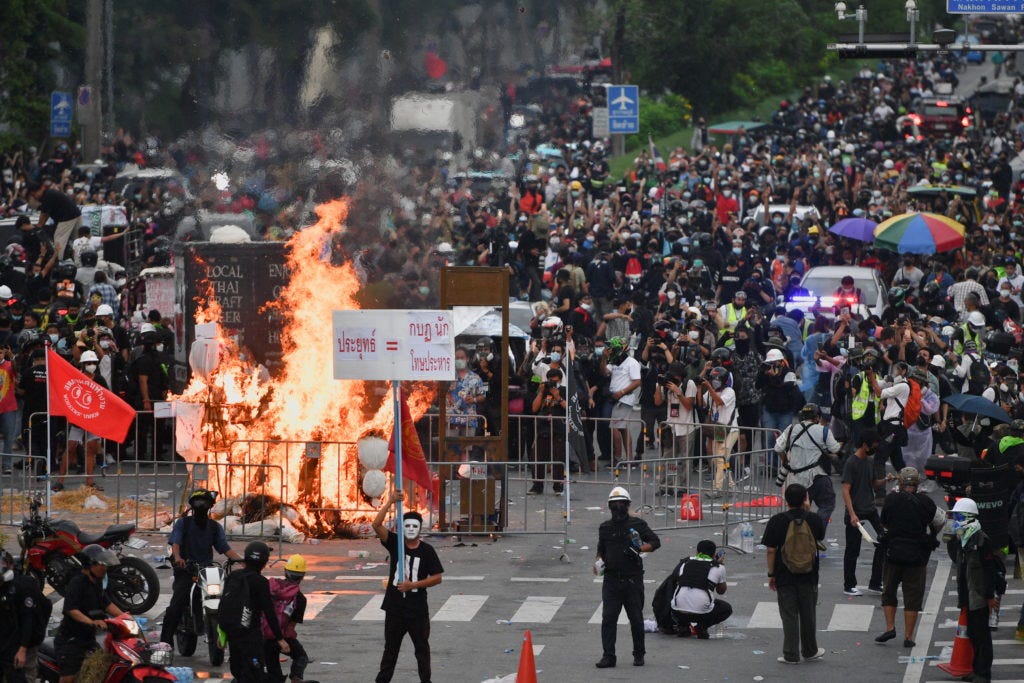Thais Increasingly Turn Against Prime Minister
Continuing protest, Covid mismanagement, other issues weigh on government
Thai Prime Minister Prayuth Chan-Ocha, with protesters besieging his residence, with Covid-19 cases seemingly out of control amid widespread charges of corruption and favoritism, and with the economy shrinking, is losing the confidence of his inner circle and under growing pressure to resign as members of the cabinet blame each other for the crisis, inf…
Keep reading with a 7-day free trial
Subscribe to Asia Sentinel to keep reading this post and get 7 days of free access to the full post archives.


